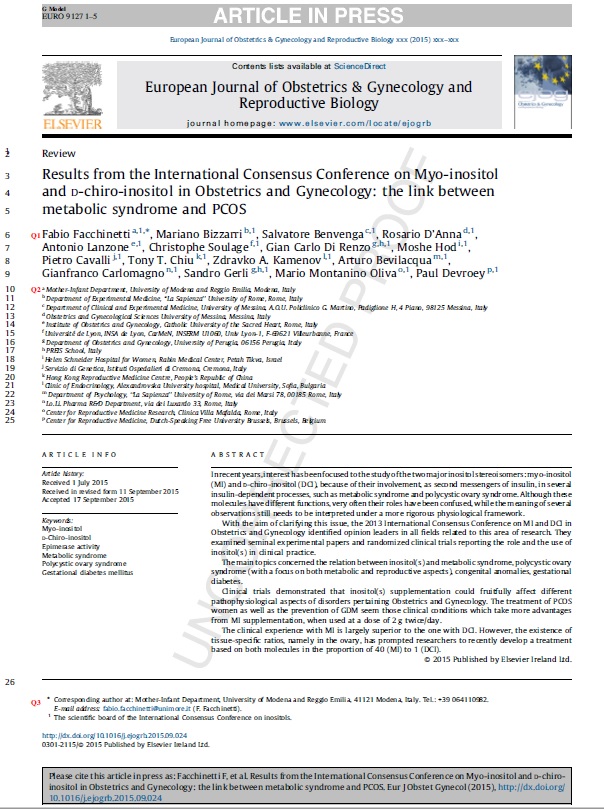Abstract
In recent years, interest has been focused to the study of the two major inositol stereoisomers: myo-inositol (MI) and d-chiro-inositol (DCI), because of their involvement, as second messengers of insulin, in several insulin-dependent processes, such as metabolic syndrome and polycystic ovary syndrome. Although these molecules have different functions, very often their roles have been confused, while the meaning of several observations still needs to be interpreted under a more rigorous physiological framework. With the aim of clarifying this issue, the 2013 International Consensus Conference on MI and DCI in Obstetrics and Gynecology identified opinion leaders in all fields related to this area of research. They examined seminal experimental papers and randomized clinical trials reporting the role and the use of inositol(s) in clinical practice. The main topics were the relation between inositol(s) and metabolic syndrome, polycystic ovary syndrome (with a focus on both metabolic and reproductive aspects), congenital anomalies, gestational diabetes. Clinical trials demonstrated that inositol(s) supplementation could fruitfully affect different pathophysiological aspects of disorders pertaining Obstetrics and Gynecology. The treatment of PCOS women as well as the prevention of GDM seem those clinical conditions which take more advantages from MI supplementation, when used at a dose of 2g twice/day. The clinical experience with MI is largely superior to the one with DCI. However, the existence of tissue-specific ratios, namely in the ovary, has prompted researchers to recently develop a treatment based on both molecules in the proportion of 40 (MI) to 1 (DCI).

